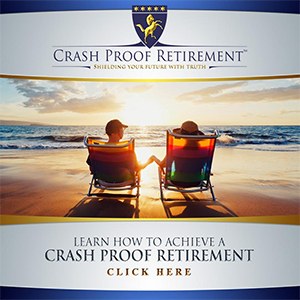Although self-directed Individual Retirement Accounts (IRAs) have been around since 1975, many investors have just found out about them. A self-directed IRA is the same as a traditional IRA, except that it allows investors to put their money into investments other than stocks, bonds, and mutual funds. Though there are some exceptions, investors can put almost anything in a self-directed IRA, like certain precious metals, franchises, and real estate. The flexibility of a self-directed IRA may appeal to some investors who want to have a more hands-on role in managing their accounts. This can work well for younger investors; but, for those who are at or near retirement age, a self-directed IRA can be a risky proposition, and there may be more appropriate investment opportunities out there. You should make sure you know the pitfalls of a self-directed IRA before investing in one.
First, investors should be aware that the custodian of a self-directed IRA bears little responsibility for the success or failure of the account. By taking over responsibility, you may be exposing yourself to even greater risk, as the custodian of your account will most likely not review your investment decisions. Most self-directed IRA custodial agreements explicitly state that the custodian assumes no responsibility for the account’s performance. It is important to know that the freedom of a self-directed IRA comes with some responsibility on the part of the investor to look into his/her own investments. Without proper research, you could make poor investment choices and actually end up losing money. This is a major disadvantage when comparing a self-directed IRA to a traditional or Roth IRA; the custodian of a traditional or Roth IRA will be more informed than the average investor and will generally be in a better position to decide which investments are appropriate.
By taking over responsibility, you may be exposing yourself to even greater risk, as the custodian of your account will most likely not review your investment decisions. Most self-directed IRA custodial agreements explicitly state that the custodian assumes no responsibility for the account’s performance. It is important to know that the freedom of a self-directed IRA comes with some responsibility on the part of the investor to look into his/her own investments. Without proper research, you could make poor investment choices and actually end up losing money. This is a major disadvantage when comparing a self-directed IRA to a traditional or Roth IRA; the custodian of a traditional or Roth IRA will be more informed than the average investor and will generally be in a better position to decide which investments are appropriate.
Second, like traditional IRAs, self-directed IRAs are tax-deferred accounts. This means that when money is withdrawn, tax must be paid on it at the current income tax rate. There may also be significant penalties for taking money out of an IRA before a certain age. A tax deferred account may not be the best choice for retirees who need to hang onto every penny. If considering any IRA, the Roth IRA may be a better choice as you will pay taxes when contributing to the account, but not when withdrawing from it. Any interest earned is tax free. Again, be aware that a self-directed IRA works like a traditional IRA (taxes on withdrawals), but not like a Roth (taxes on contributions).
Third, the nature of these accounts being self-directed leaves investors vulnerable to a number of scams perpetrated by custodians of these accounts. The North American Securities Administrators Association (NASAA) warns investors to be wary of fraudulent schemes linked to self-directed IRAs. Although these accounts may make you feel like you have more control over your investments, you must be careful not to be fooled by an unscrupulous custodian or by a Ponzi scheme.
Ponzi schemes work by collecting money from new investors to pay for the gains of previous investors. A Ponzi scheme is like a house of cards, in that it can come crashing down with the slightest provocation. If too many investors come to collect at the same time, the scammer will be left scrambling to find enough money to pay them all. By running a self-directed IRA Ponzi scheme, the scammer can avoid this problem. By its nature, a self-directed IRA lends itself well to the perpetration of Ponzi schemes because investors are required to keep their money in the account until they reach a certain age. This gives the scammer time to hide the money and cover his tracks before the scheme is exposed. In the self-directed IRA scheme, the money may already be gone by the time investors realized they have been fleeced.
Also, as mentioned earlier, self-directed IRA custodians bear no responsibility for the performance of your account. Therefore, they may try to sell you on overly risky investments that will net them larger profits. And it is unlikely that such a custodian would take the time to investigate investment opportunities on your behalf if it means a big payday.
While self-directed IRAs may be sold as a “safer” alternative to the market, or as a more profitable alternative to bonds or CDs, you should know as an investor that they usually expose you to the same amount of risk as the stock market. Depending on the assets you choose (or that your custodian has sold you), you may end up with little growth, or worse, you may lose your money to normal market conditions or even a fraudulent scheme. For anyone at or approaching retirement age, it is crucial to get educated about the benefits and pitfalls of any investment by speaking with a qualified financial advisor before making any decisions.




